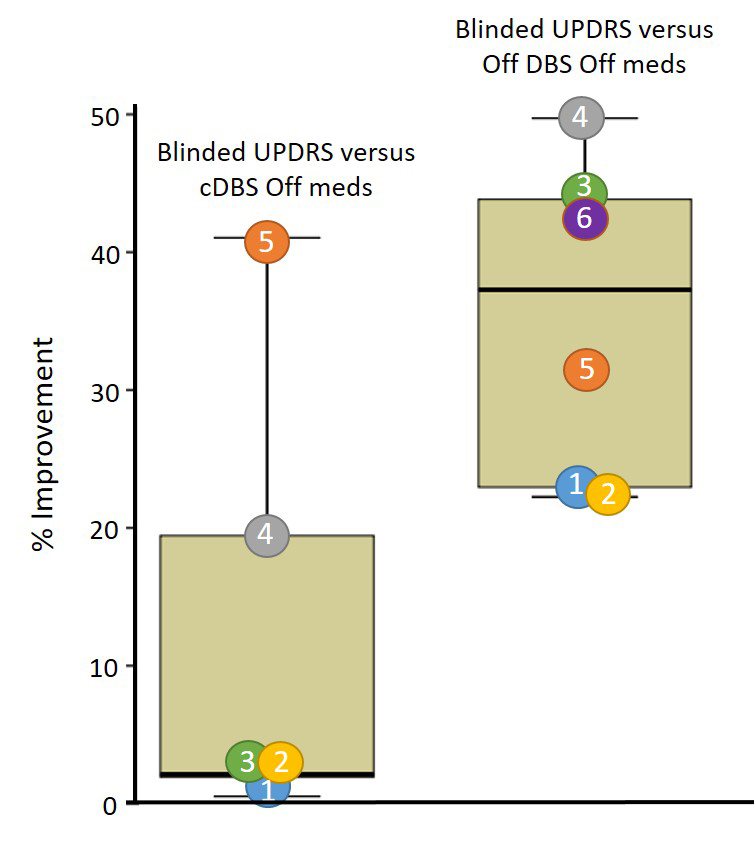Debugging adaptive deep brain stimulation for Parkinson's disease.
Continuous deep brain stimulation (DBS) is a successful treatment for advanced Parkinson’s. However, there is room for improvement and side effects may occur. In adaptive DBS, brain signals are used to adjust the stimulation, and early studies have shown it is efficient and reduces side effects. Here, we discuss what further research is needed before this treatment can be made available to patients.
Deep brain stimulation (DBS) is a successful treatment for patients with Parkinson's disease. In adaptive DBS, stimulation is titrated according to feedback about clinical state and underlying pathophysiology. This contrasts with conventional stimulation, which is fixed and continuous. In acute trials, adaptive stimulation matches the efficacy of conventional stimulation while delivering about half the electrical energy. The latter means potentially fewer side-effects. The next step is to determine the long-term efficacy, efficiency, and side-effect profile of adaptive stimulation, and chronic trials are currently being considered by the medical devices industry. However, there are several different approaches to adaptive DBS, and several possible limitations have been highlighted. Here we review the findings to date to ascertain how and who to stimulate in chronic trials designed to establish the long-term utility of adaptive DBS.

2023. Brain Stimul, 16(5):1412-1424.
2023. Brain, 146(12):5015-5030.